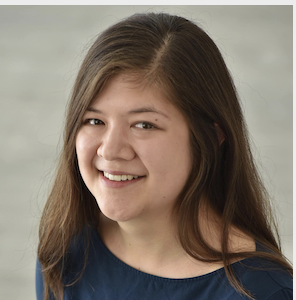PROFESSOR FIONA SHEN-BAYH TALKS MENTORSHIP, DEDICATION TO QUESTION-BASED RESEARCH
Published: September 30th, 2019 – Written By: Leslie Davis
When Professor Fiona Shen-Bayh started graduate school at the University of California Berkeley, she knew that she wanted to study political repression and autocratic regimes. Having family who lived during the Cultural Revolution, she thought this would be in the context of China.

Years later, Shen-Bayh found herself studying the legal, judicial and repressive dimensions of autocracy in the context of Africa instead. She continues to study this area as a new government assistant professor at the College of William and Mary.
Shen-Bayh attributes being introduced to these themes in Africa to a mentor she had during her Ph.D. program. He taught Shen-Bayh in his political violence class and later became her dissertation adviser. Shen-Bayh said that her adviser shaped her path in academia.
“This is the really important part of research is finding good mentors,” Shen-Bayh said. “He was just someone who is really easy to talk to and I could go with him with my unfleshed out ideas and he’d immediately have feedback for me. Being able to find a mentor like that, it really shaped my academic and research trajectory, and so that’s one of the reasons why I chose Africa as a place to study these themes.”
It was because of her mentor that Shen-Bayh said that she received the support to complete her dissertation, a project she is currently turning into a book manuscript.
“Research, it is a very isolating process because you do it alone,” Shen-Bayh said. “These are your questions and your ideas. You’re the one who has to write it up. Everybody does a dissertation by themselves — but you don’t. Because it’s actually impossible to do alone. You need a network of support and the most important node of that network is your mentor, your advisor. What my advisor at Berkeley provided for me was unconditional support and unconditional support across all of his mentees.”
In order to study the courts in various African countries, Shen-Bayh relies on data science methods like text processing to conduct her research. She didn’t have a computational background going into her dissertation, but instead acquired her technical skills when faced with large amounts of archival documents for the project.
“I was dealing with primarily archival material and legal text data,” Shen-Bayh said. “I started getting interested in digitizing these records just as a way to organize them so I could look at them later, and then realizing once I’ve digitized this corpus of a couple thousand documents, I can actually analyze it through computational text methods. That’s what sort of got me into a data science track. Everything kind of evolved very organically.”
Shen-Bayh taught herself how to code in python, scrape the web and automatically extract text data to research the courts in different African countries. She found that throughout her experience with these research methods, the most challenging part occurs in the preprocessing and cleaning stages.
“I think what you find with this data science stuff is that 80 to 90 percent of the hard work is cleaning the data,” Shen-Bayh said. “Once you get the data trained and organized in the way you want it to — the analysis is like a couple of lines of code. It’s the preprocessing, that takes forever.”
Despite her passion for these data science methods, Shen-Bayh stressed the importance of creative questions to drive research.
“The question matters,” Shen-Bayh said. “I think it’s really tempting to try to acquire all of these methods because it’s very new, it’s very flashy, it’s very exciting. But at the end of the day — and this is something which has become really apparent to me the longer I’ve been in academia — the thing that people really care about and the thing that’s rewarded is having interesting ideas. You’re evaluated not necessarily by how fancy or flashy your method is, but are you asking a question that people care about?”
Because of the “question-based research” she describes, Shen-Bayh advises students to find research topics they can defend their passion to others.
“People aren’t going to be convinced unless you’re convinced, so at the end of the day, focus on asking a question that you care about and then accumulating the methods that would be useful towards answering that question,” Shen-Bayh said. “Don’t let the methods carry you away.”
As Shen-Bayh enters her first semester of teaching at William and Mary, she is excited to teach a cross-listed course in Data Science and Government called “Leveraging Legal Data in Comparative Context.” In addition to her book manuscript, Shen-Bayh is hiring student research assistants to help complete her side project on ethnic bias in judicial decision-making in Kenya.